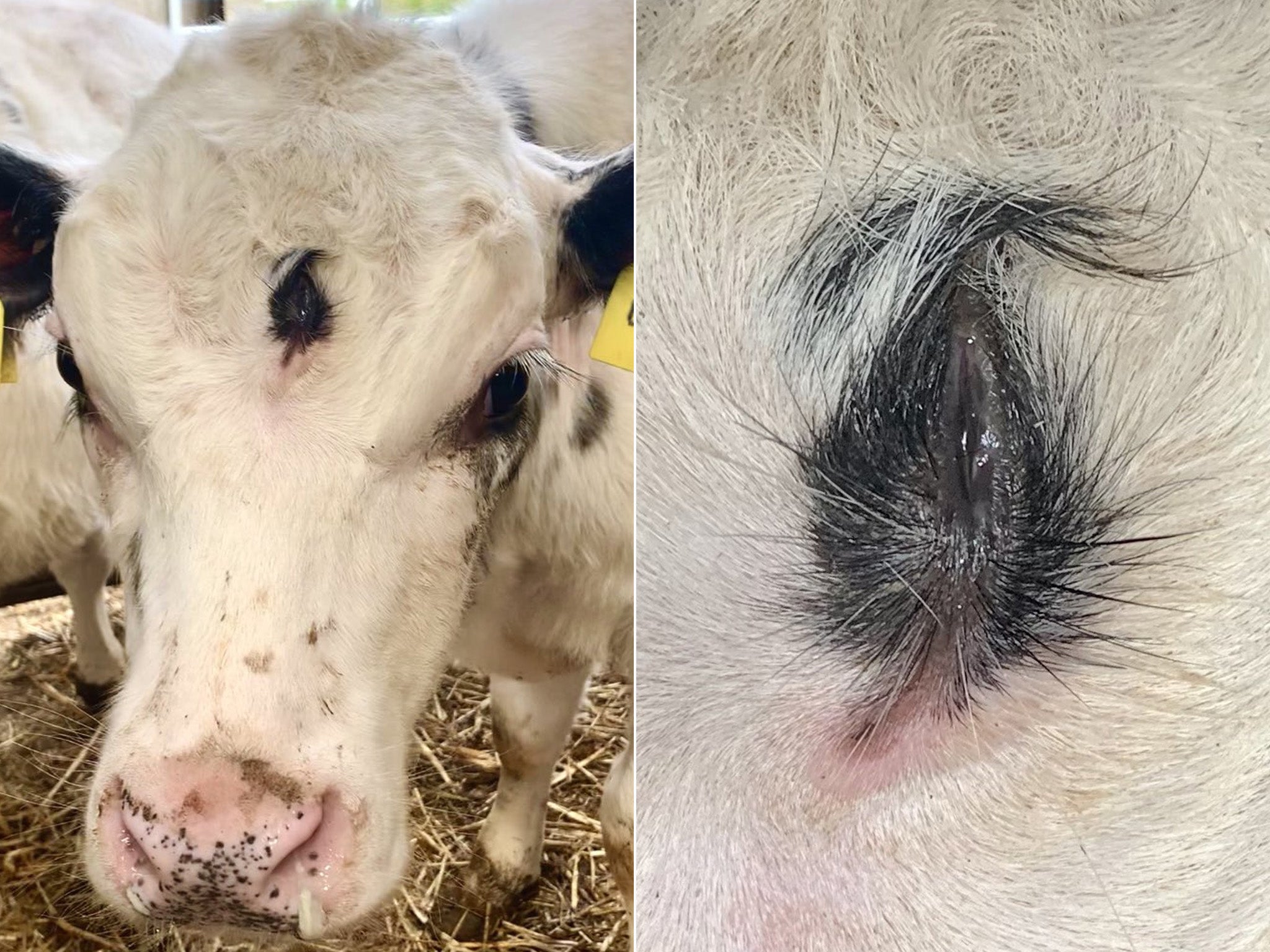Calf born with third eye on forehead — but still destined for slaughter
Vet says cow will be treated same as any other

Your support helps us to tell the story
From reproductive rights to climate change to Big Tech, The Independent is on the ground when the story is developing. Whether it's investigating the financials of Elon Musk's pro-Trump PAC or producing our latest documentary, 'The A Word', which shines a light on the American women fighting for reproductive rights, we know how important it is to parse out the facts from the messaging.
At such a critical moment in US history, we need reporters on the ground. Your donation allows us to keep sending journalists to speak to both sides of the story.
The Independent is trusted by Americans across the entire political spectrum. And unlike many other quality news outlets, we choose not to lock Americans out of our reporting and analysis with paywalls. We believe quality journalism should be available to everyone, paid for by those who can afford it.
Your support makes all the difference.A cow on a North Wales farm was born with a third eye in the middle of its forehead.
Veterinarian Malan Hughes made the “extremely rare” discovery when testing cattle for TB at a farm in Gwynedd.
Ms Hughes said she rears around three thousand calves a year but had “never seen anything like” the three-eyed cow.
Despite the anomalous additional eye, Ms Hughes said the cow acts much the same as all the other calves and suggested it was destined for the same fate.
“From the outside the extra eye looks fine,” Ms Hughes told NorthWalesLive, “It has eyelids and eyelashes, and it is moist too, as if some kind of lubricant is being secreted.”
She added: “But it’s impossible to know if anything is going on behind the eye.”
Ms Hughes came across the three-eyed calf while testing cattle for TB at Jake Jones's farm in Gwynedd. Along with her veterinary work, she helps out with her family's cattle at home, but she was still not prepared for this discovery.
“Having a calf or any animal with this impairment is extremely rare,” she said.
“Vets tend to see all sorts of things - cyclops lambs and animals born with two heads – but I have never seen anything like this before.”
The vet said the dairy-British Blue cross should lead a “normal” life of a cow destined for slaughter.
“It does not act any differently from any other calf,” she said.
“As a veterinary practice, we will certainly be treating it with the same care we give every animal.”
Join our commenting forum
Join thought-provoking conversations, follow other Independent readers and see their replies
Comments